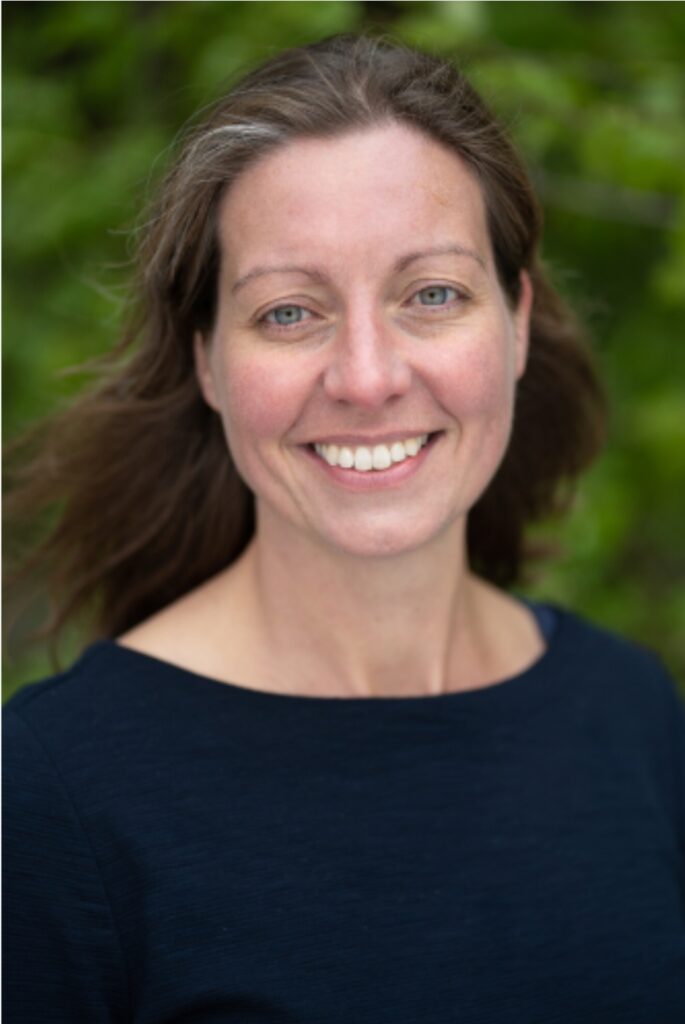Laurien Holtjer has been Rewilding Europe’s Head of Communication for many years and is one of the faces responsible for the organization’s strategy for the coming years in terms of communication and the involvement of local people and communities. In this interview, we learn more about her vision of the rewilding approach and how she analyzes the evolution of the Greater Côa Valley in recent years.
What do you think sets rewilding apart from other nature conservation approaches? Explain to us the doom and gloom narrative that rewilding wants to avoid in its communications.
Rewilding stands out because it’s so much more than conservation. It’s not simply about protecting animals and places. Rewilding works to restore the functionality of entire ecosystems, revitalising natural processes so that nature can heal itself. Trusting nature’s resilience is core to rewilding. Nature will bounce back if we give it space. The question now is – will we let it? Can we accept the return of wild animals and learn to live alongside them? Can we accept not knowing exactly how a landscape will look if we let nature lead? More than anything, rewilding is about people. And this is why communication is tremendously important. It evokes emotions, shapes perceptions, and can inspire people to take positive action. In our communications, we stay away from the doom and gloom – the anxiety narrative that characterises many of today’s messages around nature, biodiversity, and conservation – because it makes people feel helpless and overwhelmed. Instead, we aim to energise and empower people with hope by shifting away from fear towards presenting solutions and opportunities. A positive tone of voice is key and our guiding principle.
As Rewilding Europe’s Head of Communications, what have your greatest challenges and successes been?
The biggest challenge is our continued focus on impactful, high-quality communications. We have plenty of great stories to tell, but the crucial thing is to put everything we communicate in a broader context and stand out. Rewilding isn’t just a project. It’s a long-term commitment. We need to realise a paradigm shift in how we view nature. Shifting the nature narrative from fear to one of hope, opportunity, and tangible solutions has been an ongoing journey, and it is incredibly rewarding to see people’s mindsets gradually changing. From young people and local communities to big businesses and policymakers, the rewilding movement is going from strength to strength and delivering a growing impact on the ground.
What insights can you give us about the communications strategy of Rewilding Europe and its landscapes in the coming years?
Successful rewilding depends on engaging local communities and gaining support from a wide range of stakeholders. Our focus will be on expanding local and national communication impact, promoting rewilding’s vision for healthy nature and a better society. We’ll also continue to showcase the benefits rewilding brings to people through films, podcasts, imagery, stories, and other media, aiming to broaden our reach. To further advance the rewilding movement, we’ll highlight rewilding as a smart, cost-effective, solution for a wide range of societal challenges, like climate change, biodiversity loss, and the need to improve our health and well-being. We will also encourage others to start their own rewilding journey by promoting key tools and platforms, such as the European Wildlife Comeback Fund, Rewilding Europe Capital, and the European Young Rewilders.
Local communities and the open communication channels we can establish with them are key to the success of rewilding efforts, as they are in the Greater Côa Valley. How do you see that connection, and how can we build engagement to ensure such success?
For rewilding to succeed, local community support and involvement are crucial. Our focus is on ensuring that the benefits of rewilding are tangible at a local level. We need to demonstrate that rewilding is not only about restoring nature but aims to improve the lives of people too. This improvement can be realised in a whole range of ways – from the provision of jobs and income to the preservation of cultural heritage. A prime example is the Wild Côa Network, now comprising over 40 nature-based businesses. They support rewilding and benefit from collective promotion, mutual support, and training. When people directly experience the positive impact of rewilding, their engagement and support for wilder nature increase. Ultimately, by listening carefully, we can take account of the voices and needs of local communities in our rewilding plans, ensuring that our efforts deliver real benefits to their lives.
How do you see the evolution of the Greater Côa Valley rewilding landscape, in terms of practical rewilding, development of the initiative, and communications and engagement? What are the main opportunities and challenges?
The Greater Côa Valley has developed rapidly in a short time span. I remember my first visit a few years ago, when Rewilding Portugal was exploring opportunities for land access. Today, the landscape boasts multiple rewilding sites and the team has released wild horses and Tauros. The Greater Côa Valley is becoming a showcase for connecting nature recovery with people and is in a great position to demonstrate rewilding and its benefits, to both a national and international audience. However, we can’t afford to sit back and relax. The biggest challenge – as it is with all rewilding landscapes – is to ensure long-term focus and impact. After more than a decade, we need to move beyond rewilding actions only and showcase true impact.
From a personal perspective and reflecting on 2023, what would you like to see happen in 2024?
I see the Greater Côa Valley as a potential flagship for rewilding across Europe and beyond. As we work towards this, I am looking forward to seeing more updates and stories based around rewilding actions on the ground. It’s also vital to give local people who are supporting and benefitting from rewilding a platform, amplifying their voices. By doing so, it supports our joint mission: making Europe a wilder place.
